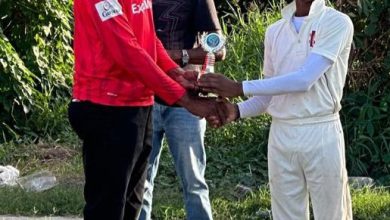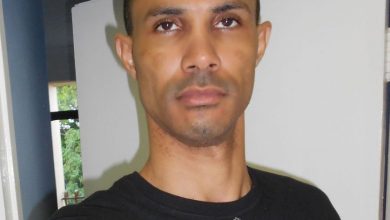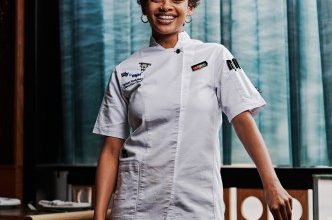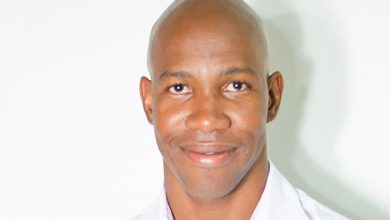Caribbean RoundUp
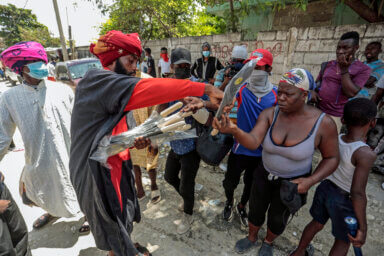
Barbados
Barbados is being described as one of the best black-run societies in the world and a small nation that is becoming a global powerhouse.
Barbados’ Ambassador to the United States and the Organisation of American States, Noel Lynch, disclosed that this view was shared with him during the “Barbados Comes to Atlanta” (BCTA) Business Forum, at the Clayton County International Park, Atlanta, Georgia.
He noted that this perspective was discussed during his engagements with global commentators as Ambassador, which he described as “the best job in the world” because “every day I get to articulate the vision of Mia Amor Mottley for the development of a small nation that’s becoming a global powerhouse”.
“Barbados, like all other countries has gone through some difficult times, but we are recovering and we’re recovering maybe better than people didn’t even envision that we would have recovered… And in a country that is moving ahead and doing the kind of stuff that we’re doing, putting Barbados on the map, we’re showing that a small developing state can be a global powerhouse,” Ambassador Lynch stated.
He cited the Bridgetown Initiative as one example as to why Barbados was being viewed as a global powerhouse. Lynch explained to those present, that the initiative is essentially a new deal to restructure the global financial architecture that would not only help Barbados but would also help all other small developing countries like Barbados, to do what is necessary to maintain, sustain and build resilience for future generations.
Caribbean
Head of the International Renewable Energy Agency (IRENA), Francesco La Camera has warned that Small Island Developing States (SIDS), including those in the Caribbean are confronted with a “pressing race” against climate change.
Addressing the opening of a three-day high level international energy conference recently, La Camera said the problems are not new and have been highlighted in the latest Intergovernmental Panel on Climate Change (IPCC) report.
“The world is off track and this reality follows a disproportionate threat to the lives and the livelihood of the most vulnerable. It is the global responsibility to secure the reliable and sustainable future for SIDS by significantly accelerating the pace and scale of the transition during this decade.
The Caribbean region has long been an example of how innovation, novel approaches and partnerships can drive renewable energy deployment,” he said.
Adding,” However, to strengthen this momentum we must ensure greater access to financing, technology and capacity support . Promoting an environment, conducive to energy transition investments, and the facilitation of access to affordable and appropriate forms of finance for the implementation of energy transition projects in the Caribbean small island developing states.”
The conference was organized by the Barbados government and facilitated by IRENA through the SIDS Lighthouse initiative, under the theme Caribbean Cooperation for Fostering Energy Transition Investments and Finance.
Guyana
The government of Guyana says it has secured a multi-million dollar loan from Qatar to extend the highway to Parika in Region Three on the country’s west coast.
Guyanese President Irfan Ali, visited the Middle Eastern country earlier in May and said that “we have just secured US$340 million to continue the road.”
Last year, the government signed contracts worth over GUY$11.8 billion for the project that includes the construction of a 4.1-kilometre dual carriageway reinforced concrete roads, complete with an emergency lane, and rehabilitating and upgrading 2.4 kilometers of road.
President Ali expressed his confidence that the project, originally scheduled for completion in June 2024, will be finished well ahead of schedule.
“Hopefully, by the third quarter of this year we will be opening the new bypass highway from Schoonord to Crane,” he said.
Other major projects ongoing in the region include the construction of a new Demerara River bridge, and the gas-to-energy project, which will result in natural gas being piped from offshore to an onshore facility at Wales, West Coast Demerara.
Haiti
Human rights groups in Haiti says violence by armed gangs in the French-speaking Caribbean Community (CARICOM) country has declined significantly following the emergence of a vigilante group known as Bwa Kale, in April.
The Centre d’analyse et de recherche en droits de l’homme (CARDH) in a report said that the vigilante group is linked to at least 160 killings in April. It began after residents in Port-au-Prince lynched and set fire to more than a dozen suspected gang members on April 24. It said the activities of Bwa Kale have resulted in no kidnappings taking place from April 24 to May 24, while gang -linked slayings occurred during the same period. CARDH said 146 gang members were recorded between April 1 and April 23.
“Without making a value judgement, the Bwa Kale movement has in just one month produced convincing, visible results; fear has changed sides. Both kidnappings and gang-related killings have fallen drastically,” CARDH added in the report.
CARDH said the vigilante groups are mainly made up of young people including some children, and likely emerged from the extreme cruelty inflicted by gangs, the ineffectiveness of the government, police and lack of international action.
Jamaica
Jamaica’s Prime Minister Andrew Holness says the government is seeking to expand its partnership with the church to build more schools in Jamaica in an effort to enforce a value-based education in the society.
Saying that there has been a “transition” in the country’s foundational values. “I believe the church can play and is playing a very important role in fortifying the society and in ensuring that there isn’t a total collapse of the moral base of the society,” he stated.
The prime minister was speaking at the 2023 Pentecostal Assembly, hosted by the Roman Catholic Archdiocese of Kingston, at the National Arena in Kingston recently.
Holness also said that schools managed by the church continue to perform exceptionally well. “Our education system is not as bad as some would have it to be. We have schools that continue to produce world-leading talent,” he stressed.
It is against this background that Holness noted that faith-based education is still valuable, “even as society becomes modernized and takes an agnostic view.”
“Being grounded in a faith-based educational program is still powerful and valuable in today’s world,” he said.
Trinidad
Trinidad and Tobago has been named as one of 28 front-runner countries, which will receive support from the World Health Organisation (WHO) in the fight against non-communicable diseases. This was revealed by Health Minister Terrence Deyalsingh.
The plan to assist front-runner countries was put forward at the WHO’s 75th anniversary celebrations in Geneva.
Deyalsingh said a roll-out of the acceleration plan has started with inter-country dialogues with the front-runner countries, led by regional offices.
The WHO is working to support front-runner countries to accelerate their progress by tracking progress and policy interventions in the mid-term (2025) and long-term (2030).
The experience of front-runner countries will inform action for all other member states, and WHO says it stands ready to provide technical support to any other Member State that decides to accelerate action on obesity.
The WHO also noted that inter-country dialogues also established a platform to unite countries and other stakeholders in a common vision for the response to the obesity epidemic.
Since May 2022, 28 front-runner countries have been identified based on epidemiological data and strategic priorities, policy environment and their expressed interest in or need for technical support in this area.
The countries are Argentina, Bahrain, Barbados, Botswana, Brazil, Chile, Egypt, Eswatini, Islamic Republic of Iran, Jordan, Kuwait, Mauritius, Mexico, Panama, Peru, Philippines, Portugal,Qatar, Seychelles, Slovenia, South Africa, Thailand, Tonga, Trinidad and Tobago, Tunisia, Turkey, United Kingdom of Great Britain and Northern Ireland, and Uruguay.
— Compiled by Devika Ragoonanan

